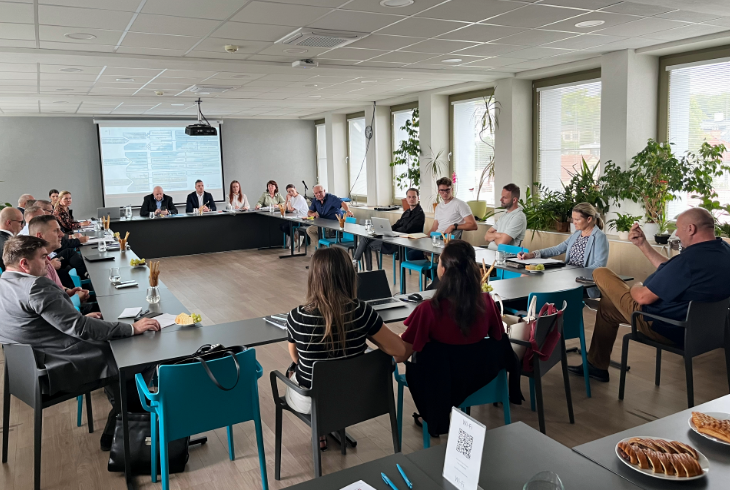

New
How to Improve Air Quality in the Energy and Heating Sector
24. 09. 2025
![]() Heating
Heating
On September 10, 2025, the first meeting of the Energy and Heating task force took place. It followed an initial meeting at the Ministry of Environment of the Slovak Republic (MoE SR), organized to facilitate inter-ministerial cooperation on air protection, initiated by the LIFE IP – Air Quality Improvement project (Populair). The task force’s task is to identify areas beyond the competencies of the environment ministry and develop solutions to improve air quality for the health of Slovak citizens and to comply with international obligations.

The discussion was based on an introductory presentation focusing on air quality problems related to heating. Slovakia currently faces exceedances of PM10, PM2.5, and BaP limits, making it necessary to implement effective measures to improve air quality as quickly as possible, especially in regions subject to EU infringement procedures - Banská Bystrica Region, Košice Region, and Košice agglomeration.
It is also important to address air protection comprehensively and seek synergies with measures from other ministries that can positively impact air quality across Slovakia, particularly in light of stricter limits in the EU Directive 2024/2881 of 23 October 2024 on ambient air quality and cleaner air in Europe.
The discussion highlighted the positive contributions of the Populair project and the need for continuity in expert advice, education, and awareness-raising efforts.
Regional experience shows that household heating with solid fuels - primarily wood - is problematic. Wet wood is often used, which should ideally be dried for 1–2 years to reach 23–24% moisture, but this is rarely followed in practice. Another issue is the burning of waste, including old furniture, treated wood, OSB boards, etc. Awareness campaigns and financial support, such as providing high-quality fuel wood through municipal storage facilities, were discussed as necessary measures.
Regarding the replacement of heating devices, the group repeatedly suggested legislatively banning outdated high-emission stoves and promoting automated heating systems. Replacement must be paired with energy efficiency improvements, starting with better thermal insulation of buildings and households before replacing the heating device. Targeted assistance, cost-effectiveness, and compliance with international obligations are key - moving toward zero-emission buildings, gradual phasing out of fossil fuels, and limiting wood biomass (high-quality roundwood) for energy use.
Effective enforcement of proper heating practices and legal obligations relies on cooperation with professional organizations, particularly chimney sweeps. Currently, the Slovak Environmental Inspection does not collect ash or chimney swabs due to technical limitations. Once these are resolved, inspections will be carried out fully.
Data is central to planning and prioritizing measures. One goal of the task force is to ensure data collection and sharing among relevant stakeholders. This data will allow modeling of the expected impact of proposed measures, enabling effective implementation and evaluation of results.
Participants from municipalities contributed practical knowledge about awareness campaigns and cooperation with local forest cooperatives.
The Energy and Heating task force includes relevant ministries, municipalities, and private companies. Its conclusions will inform the preparation of the National Air Quality Plan – the air quality roadmap.











